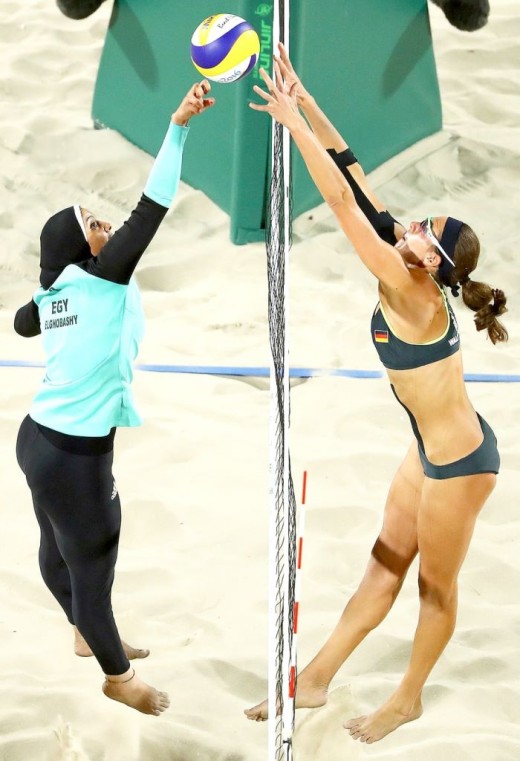
Volleyball Dress code
Traditionally, women’s volleyball players have worn clothing that left them very exposed physically, and this has had an impact on the portrayal of women’s volleyball in the media. Women’s volleyball became an Olympic sport in the year 1996, which was a positive development for female athletes overall.
However, before the year 2012, the most physical coverage that female volleyball players could expect was a one-piece bathing suit. Most of them wore bikinis that could only have a side width of seven centimeters at the most. Many reporters will specifically talk about the female volleyball players in an objectifying manner, focusing on whether or not they wear bikinis as opposed to their athletic activities. Obviously, most people watch the volleyball competitions for the sake of the sport, but others – particularly straight men, are just watching women’s volleyball for the athletes’ bodies and not for their skills.
While some female athletes do voluntarily wear the bikinis, saying that they give them a broader range of motion, many of them would rather wear something that provided more coverage. The sports coverage of women’s volleyball would also probably change in a world where women were allowed to wear what most athletes wear.
Today, people finally have a chance to find out, since female volleyball players are finally allowed to wear a broader range of uniforms thanks to the FIVB‘s decision. The Olympic Games are international, and different cultures have different standards of dress. The Muslim competitors in the Olympics would have struggled with the previous requirements for women volleyball players. However, since 2012, they’re going to have more options themselves. Volleyball fans have also the option of spending the time between the games in the Olympics by enjoying the games at Casino LaVida, which of course doesn’t require them to follow any dress code…
From Casino LaVida we’re doing a fast forward to Rio 2016 – In the first Egyptian women’s volleyball team to compete in the Olympics, the Egyptian athletes wore long pants and long sleeves. Doaa Elghobashy covered her hair with her cultural hijab, demonstrating the manner in which this sport traditionally excluded women from other cultures. Doaa Elghobashy and women like her have set a precedent for women from largely Muslim countries who want to be able to compete in women’s volleyball competitions, making the sport far more diverse than it was previously.
Doaa Elghobashy and her team have also set an important precedent for women from all cultures. Their efforts are going to make women’s volleyball less about the spectacle of women playing a game while being scantily clad, and more about the athletics in its own right. Female athletes have managed to struggle for years in order to get the same level of recognition as their male counterparts, and the objectification that they experience is just another part of the picture. Allowing more diverse uniforms in the women’s volleyball competitions is not going to make the problems with objectification go away, since these are deeply rooted in many cultures. However, it is at least a step in the right direction.
Subscribe to have full access on WoV PROFILES, STATS & VIDEO data base.
Receive email notification (FOLLOW) about players‘ and teams’ latest STATS and VIDEOS (you need to be registered).
For more articles click on Latest news.